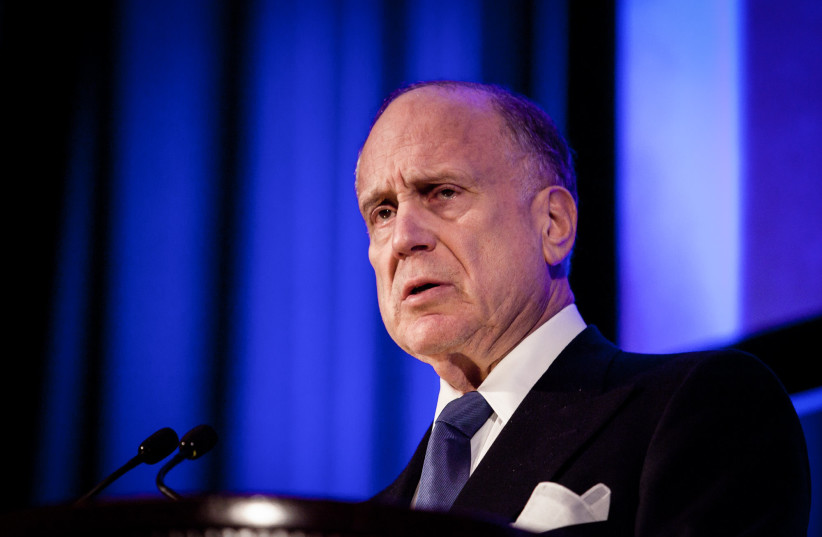Ronald S. Lauder, President of the World Jewish Congress, called for a first-ever “‘Marshall Plan’ for the Middle East” in a speech today, expressing hope that a global economic development plan directed at young Palestinians, young Egyptians and young Jordanians – that provides international investments for new businesses where few exist today – could ultimately lead to a peaceful solution in the region.
Lauder’s remarks were delivered in a pre-recorded video address broadcast at the Jerusalem Post Annual Conference in New York on Monday. “I truly believe that with better jobs, the creation of small businesses, more schools and newer hospitals, that is how you begin to give people hope. That is how you keep the next generation from turning to terror,” said Lauder, a longstanding proponent for peacemaking and of a two-state solution.
Currently in Jordan for the wedding celebration of Jordan’s Crown Prince Hussein bin Abdullah, Lauder expressed his regret that he could not attend the Jerusalem Post conference in person. He told attendees that in the course of his current visit to the Middle East, he is sensing hope for peace.
“If we gave them a chance to be part of this new world. I believe fewer would resort to terror in a no-win war against Israel.”
Ronald Lauder
A vision for peace in the Middle East
“Since the Abraham Accords were signed, I am hearing a real desire for normalized relations with Israel from countries that you never would have expected,” the Jewish leader and philanthropist said. “I’ve also seen a big change in one very important negotiating point. In the past, the Palestinian issue was always the non-starter, an absolute. We were always told that the conflict with the Palestinians had to be completely settled before any Arab country would recognize Israel. Egypt and Jordan were the only exceptions.
“Today, this negotiating point has been modified,” he said. “Now, some of these Arab states told me that they need to see positive movement in the conflict: Positive movement from Israel, but also from the Palestinians. That’s a huge change and, I believe, that’s one of the reasons that Arab countries are now reaching out to Israel.”

Lauder noted that almost half of West Bank Palestinians are less than thirty years old, saying that, “They see no positive future for themselves, unlike young people in other lands – no chance for good jobs. No chance to marry and support a family. No chance for a future – and in too many cases, with nothing else to look forward to, they turn to violence and terror out of frustration.”
He said that just as the Marshall Plan, named after its architect, US Secretary of State George Marshall, helped restore the economic infrastructure of postwar Europe, a Middle East plan could help Palestinians create normal lives, raise families and grow wealth. “If we gave them a chance to be part of this new world, I believe fewer would resort to terror in a no-win war against Israel.”
Lauder estimated that the cost of such a project would be approximately $12 billion, which would need to be paid for by the United States, the EU, the Gulf States – including Saudi Arabia, Bahrain, Qatar – and even, perhaps, Israel. He said that strong safeguards would need to be put in place to ensure that the money would reach the proper channels, adding that the plan would not be extended to Palestinians living in Gaza until they recognize Israel’s right to exist, de-militarize and stop firing rockets.
A US-backed economic plan for young Palestinians, said Lauder, would require the leadership of US President Joe Biden. “The Arab leaders I spoke to told me that without US involvement and support, it won’t happen. If President Biden agrees and there is the commitment of the United States, everyone else will follow, and this would bring the US back into the Middle East as a positive force once again.”
